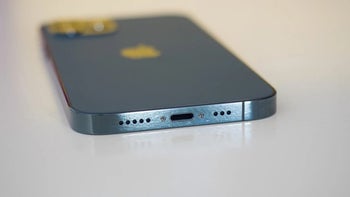European Committee votes in favor of common USB-C port for all devices, iPhones included

The European Internal Market and Consumer Protection Committee has voted on the "common port" directive that seeks to mandate all electronics manufacturers equip their devices with a USB-C port rather than go the haphazard Lightning way.
We say Lightning, as Apple is the main major holdout when it comes to equipping its iPhones and iPads with proprietary ports and this vote will directly affect its devices the most.
The move will request all new phones, tablets, laptops, digital cameras, headphones, headsets, handheld videogame consoles, and portable speakers to have one common USB-C port for charging and data transfer, except when the device is too small, such as a smartwatch. According to the Committee vote\s press release:
MEPs also want to see clear information and labeling on new devices about charging options, as well as whether a product includes a charger. This would, they say, help to avoid confusion and ease purchasing decisions for consumers that often own several different devices and do not always need additional chargers.
With the growing usage of wireless charging, MEPs want the European Commission to present a strategy by the end of 2026 that allows for minimum interoperability of any new charging solutions. The goal is to avoid a new fragmentation in the market, to continue to reduce environmental waste, ensure consumer convenience and avoid so-called “lock-in” effects created by proprietary charging solutions.
With the growing usage of wireless charging, MEPs want the European Commission to present a strategy by the end of 2026 that allows for minimum interoperability of any new charging solutions. The goal is to avoid a new fragmentation in the market, to continue to reduce environmental waste, ensure consumer convenience and avoid so-called “lock-in” effects created by proprietary charging solutions.
As evident, wireless charging will also be on the standardization chopping block. Next month, the European Parliament will be voting to approve this draft legislation and will have to then send it to the usual round of token EU member states votes, so Apple's iPhone 14 will definitely be safe from the directive's requirements for now.










Things that are NOT allowed: